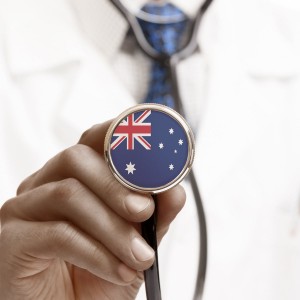[ezcol_1half] [/ezcol_1half] [ezcol_1half_end]Have you recently made the decision to move and work in the Australian healthcare system? Maybe you’ve done all the research but there’s still some parts you don’t know much about, parts such as subsidy schemes. If this interests you, then read on.
[/ezcol_1half] [ezcol_1half_end]Have you recently made the decision to move and work in the Australian healthcare system? Maybe you’ve done all the research but there’s still some parts you don’t know much about, parts such as subsidy schemes. If this interests you, then read on.
If you are going to be working in the Australian healthcare system, it is a good idea to have an understanding of government subsidies such as Medicare and the Pharmeceutical Benefits Scheme (PBS). These subsidies effect healthcare workers and patients. Here’s everything you need to know about government subsidies and the Australian healthcare system.[/ezcol_1half_end]
What Do I Need to Know About Government Subsidies?
In Australia, almost 70% of the money spent on the health system is funded by the government. This spending goes towards things such as:
- Subsidising health services (these services are provided by the various state and territory governments).
- The two major recipients of these subsidies are Medicare and the Pharmaceuticals Benefits Scheme.
- Some of these funds are also used to subsidise individuals who choose to take out private health insurance (as it benefits the country by decreasing the costs associated with running the public hospital system) as a health insurance subsidy. That is, if you have private health insurance you receive a rebate from the government.
- This rebate is income tested and applies to hospital, general treatment and ambulance policies.
- If you don’t have private health insurance you will be charged a Medicare Levy Surcharge (unless you meet certain exclusion criteria), which is designed to encourage people to take out private health insurance and decrease their reliability on the Medicare system.
What Is Medicare?
- Medicare ostensibly provides health care for all Australians.
- It can make a visit to the doctor cheap, or free (if your doctor bulk bills);
- It can pay for allied health such as physiotherapy and the like, and it can also pay for diagnostic services such as pathology and x-rays.
- If you have a life-threatening condition or injury, you can receive immediate treatment in a public hospital;
- If your condition or injury is less urgent you can still receive free treatment but you will be placed on a waiting list.
- Of course, you can elect to pay for it all yourself from your private health insurance and, in the case of certain procedures, be seen and treated immediately.
What About The Pharmaceuticals Benefits Scheme (PBS)?
The other subsidy scheme, the Pharmaceuticals Benefits Scheme (or PBS), allows Australians holding a Medicare card the ability to purchase cheaper medications. Medications are usually life-saving or disease preventing, and the ones that are on the PBS are listed on the PBS Schedule. The government subsidises the costs of these medications.
If you need help moving to Australia and finding a job in the Australian healthcare system, then you need to speak with a professional. Contact us today for advice and assistance. In the meantime, please browse our selection of medical jobs for your next career opportunity.
